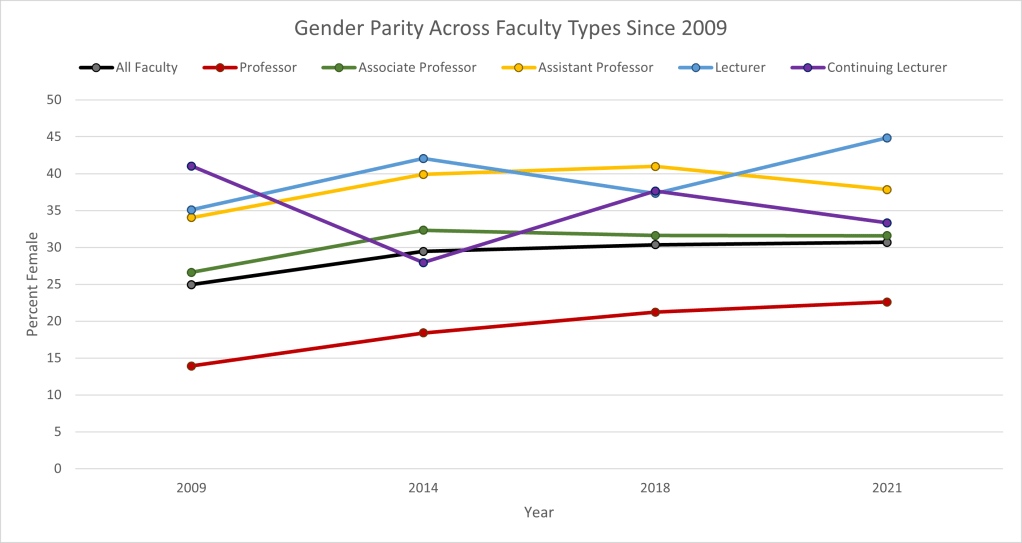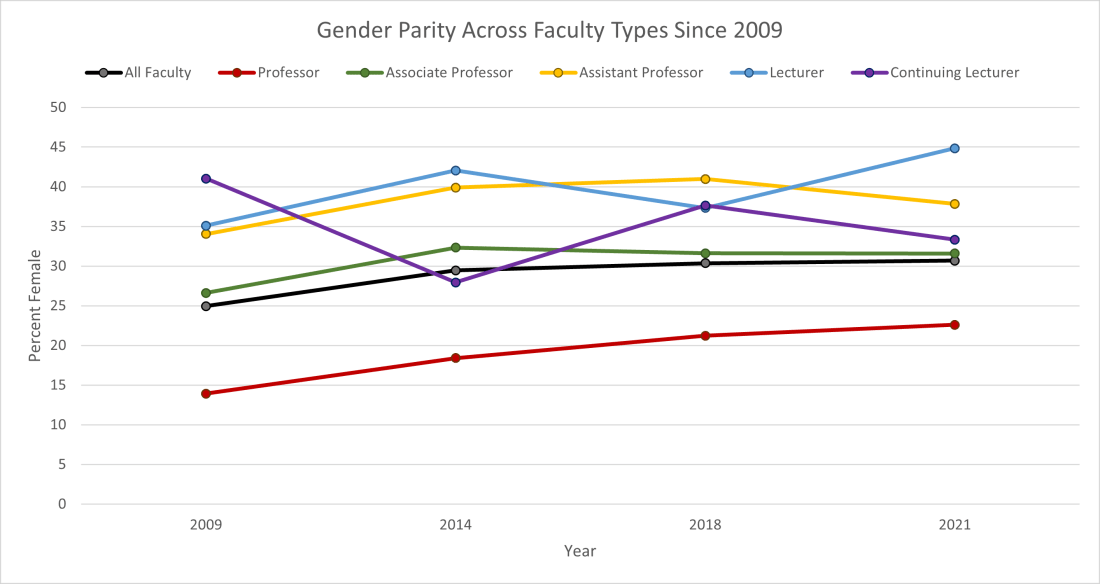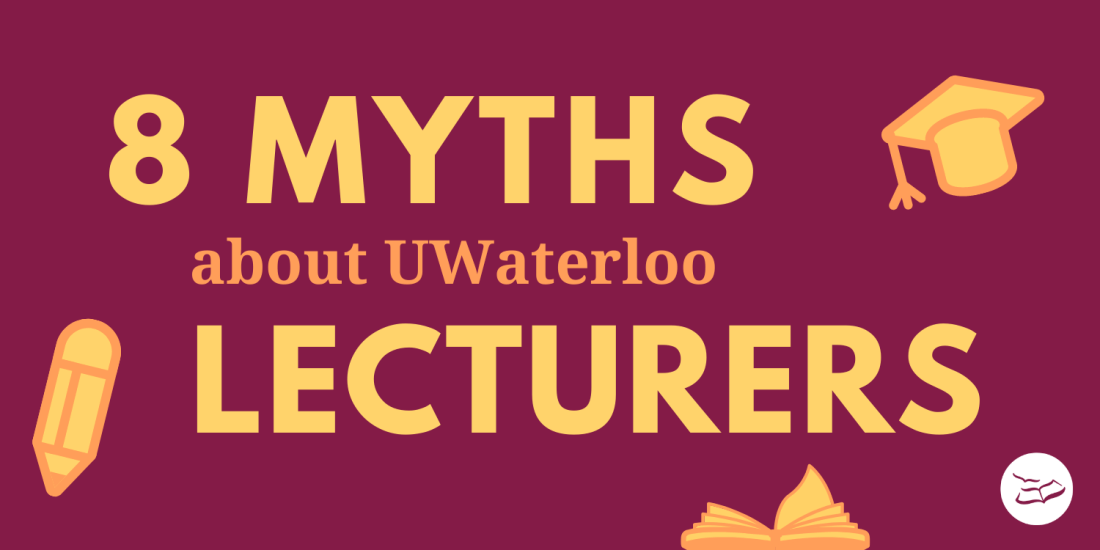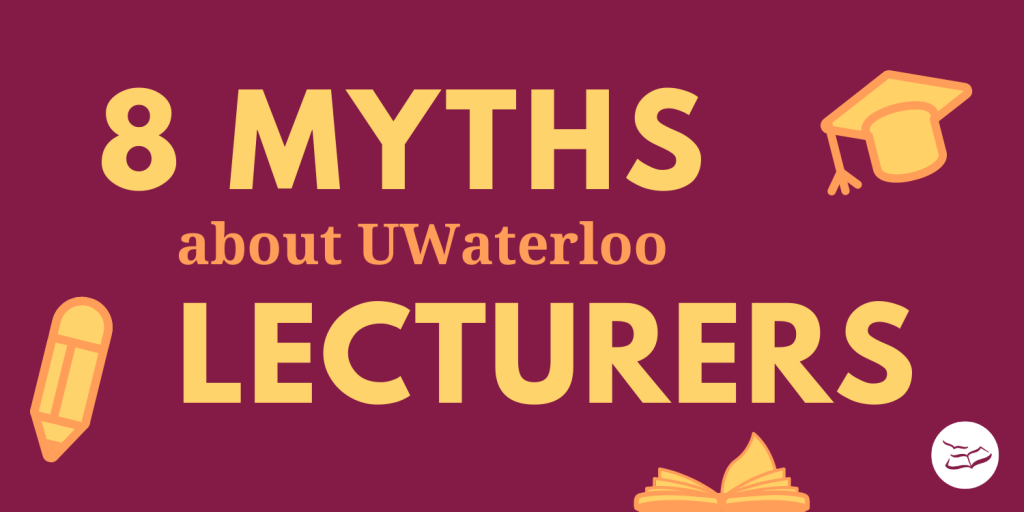A post from the FAUW Lecturers Committee and FAUW Equity Committee.
The University of Waterloo made an important commitment to make progress towards gender equity by joining the HeForShe initiative in 2014 and meeting its faculty HeForShe commitments in 2018. Of particular note for this blog post is the goal of 30% female faculty representation. Efforts towards gender parity, particularly in faculty positions, need to be long-term and sustained to ensure that equity considerations in the hiring process, promotion process, and general work culture become and persist as the norm. What is more, equity needs to occur at the micro level (i.e., faculties and departments) in addition to the macro level (i.e., university-wide). When looking at gender parity in our faculty members since 2009, university-wide, the impact of the HeForShe campaign and other equity initiatives is clear. Faculty-wide female representation has increased steadily from 25% in 2009 to almost 31% in 2021. While this is indeed progress, there are some areas for improvement. In this post, we would like to track UW’s gender parity, but it is important to note that the data we draw from is limited in that it retains cis-gender binary distinctions.
Looking at specific faculty roles, it is clear there is a need for sustained long-term equity efforts. First, female representation at the full professor level is much lower compared to other faculty roles. While there was a fairly steady rate of female representation at the associate professor level (~31.6%), there was a decline in female representation in assistant professors and continuing lecturers from 2018 to 2021. These could be early warning signs that we are taking our foot off the metaphorical equity gas pedal. The decline in assistant professor female representation is particularly worrisome, given that this is the beginning of the current professorial ranks (i.e., assistant, associate, and full professor) and declines in female representation at this rank will make it impossible to achieve the long-term change needed at the full professor rank. We all need to keep our foot on the gas pedal to ensure that equity gains are sustained in the long-term across all faculty ranks.








